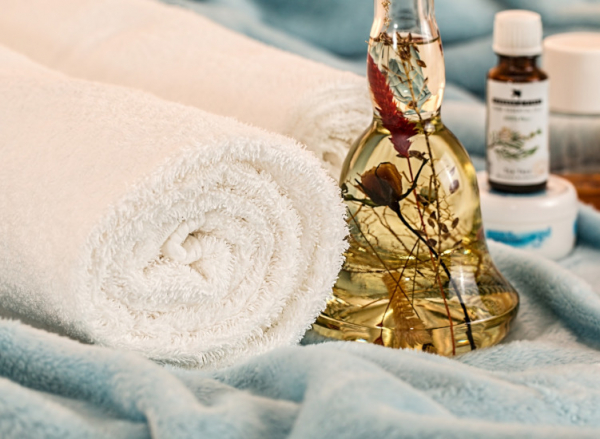Why does hair fall out?
The causes of hair loss can be divided into physiological, related to the natural processes taking place in the body, and disease, requiring treatment. Physiological changes include, for example, hair loss after childbirth, when you can lose up to half of it. This is mainly because during pregnancy, hormones inhibit hair loss, so there is new hair on the head and hair that would normally have fallen out long ago. After giving birth, hormone levels change and the number of hairs starts to decline.
Another reason is the negative influence of the external environment, which causes the hair to dry out, break and fall out. This often happens after summer vacation, when we do not wear a hat or a handkerchief. Then the scalp gets tanned, and a tan is, from a medical point of view, inflammation of the skin, i.e. its disease.
Herbs in the treatment against hair loss.
To some extent, the hair can be strengthened with herbs, because their ingredients travel with the blood and can nourish the hair follicles. Among the whole range of herbs, due to the properties desired for our hairstyles, the following are especially recommended:
Field horsetail.
It is a real treasury of potassium and easily digestible silica, which is a valuable building block of the hair as it tones and strengthens its structure. Field horsetail extract provides the necessary ions and microelements, disinfects and slightly tightens. In addition, it has anti-graying, brittleness and split ends. Silicon deficiency leads not only to hair loss, but also to dull skin and brittle nails.
Medicinal rosemary.
Rosemary is rich in antioxidants that fight harmful free radicals. By improving blood flow to the scalp, rosemary extract stimulates hair follicles to grow. It is a herbal remedy for preventing hair loss, and also has anti-dandruff, disinfecting and astringent properties.
Birch.
It has anti-inflammatory, cleansing and refreshing properties. The extract of this tree regenerates hair, giving it vitality, shine, fluffiness and softness. Moreover, they become smooth and springy.
Nettle.
It is rich in vitamins A and C, as well as key minerals and lipids that may be beneficial to your hair. Nettle blocks the conversion of testosterone to its "stronger" form, dihydrotestosterone (DHT), which is the main cause of male pattern baldness. DHT damages the hair follicles, and the hair at the temples is the most sensitive to this hormone, which is why men often have thinning recesses. In addition, nettle extract regulates the work of the sebaceous glands, which makes the hair less greasy.
Other herbs.
- Chamomile has an anti-inflammatory effect, so it soothes skin irritations. The infusion of this herb will also soothe itchy scalp. Thanks to it, the hair not only strengthens and tones, but also brightens.
- Lavender refreshes the hair, controls the production of sebum, stimulates blood circulation and has a bactericidal effect.
- Ginseng has been used in Asia for thousands of years, it improves circulation and regulates cellular metabolism. Using this perennial to prepare shampoo will nourish and strengthen your hair. It is a good hair growth remedy, especially for women.
- Ginkgo biloba helps to improve circulation, thanks to which more nutrients are supplied to the hair follicles, which stimulates hair growth.
- As a result, treatment with alfalfa not only stops hair loss, but also grows faster as the plant strengthens the bulbs.
- Fenugreek seeds also have beneficial properties in combating dandruff and hair loss.

